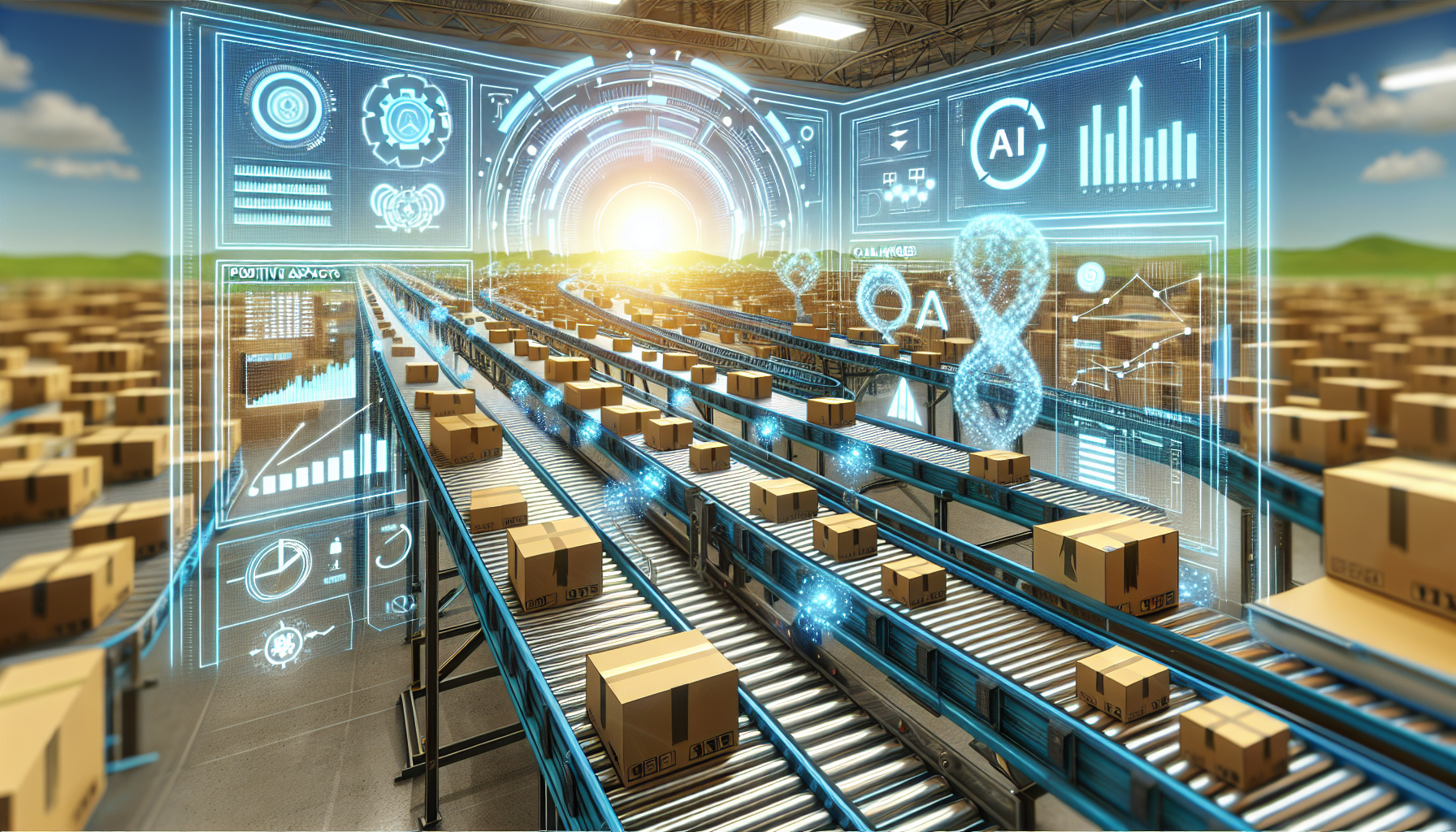The Benefits and Challenges of AI in Supply Chain Management
Understanding AI in Supply Chain Management
Artificial Intelligence (AI) has emerged as a transformative technology in various sectors, particularly in supply chain management (SCM). By leveraging advanced algorithms and data analytics, AI can enhance decision-making processes, optimize operations, and increase responsiveness to market demands. The application of AI in supply chain management is multifaceted and provides significant advantages, although it also encounters specific challenges.
Benefits of AI in Supply Chain Management
1. Enhanced Forecasting Accuracy
AI-driven predictive analytics significantly improve forecasting accuracy by analyzing historical data, trends, and external factors. Traditional methods often rely on simplistic models that overlook complex patterns. AI can scrutinize vast datasets, identifying correlations that human analysts may miss. This results in more precise demand forecasts, enabling organizations to adjust their inventory levels and production schedules accordingly.
2. Improved Inventory Management
AI aids in optimizing inventory levels by analyzing demand fluctuations and recommending reorder points. Machine learning algorithms predict the ideal stock levels, reducing excess inventory and minimizing stockouts. This not only improves cash flow but also enhances customer satisfaction by ensuring product availability without tying up capital in surplus stock.
3. Supply Chain Optimization
Through process optimization, AI streamlines supply chain operations. Algorithms can analyze routes and logistics plans, minimizing transportation costs and delivery times. This real-time optimization enables companies to respond swiftly to disruptions, ensuring consistent service delivery and maintaining competitive advantage.
4. Enhanced Supplier Selection
AI can facilitate supplier evaluation by processing and analyzing data related to performance, delivery times, and pricing. This automated analysis helps organizations select the most reliable suppliers, fostering strong partnerships. Furthermore, AI tools can monitor supplier risk, alerting businesses to potential disruptions before they occur.
5. Increased Transparency
AI technologies, such as blockchain integration, enhance transparency in the supply chain. They provide real-time visibility into product movement, making it easier to track and trace goods from origin to destination. This level of transparency is crucial for compliance, especially in industries regulated by strict hygiene and environmental standards.
6. Cost Reduction
By optimizing various aspects of SCM, from procurement to logistics, AI facilitates significant cost savings. Reduction in manual labor, improved inventory management, and more efficient logistics translate into direct financial benefits for organizations. Companies can allocate saved resources to innovation and development efforts.
7. Risk Management
AI improves risk assessment capabilities through data analysis and simulation models. By evaluating numerous scenarios and potential risks, AI systems can identify vulnerabilities in the supply chain and suggest mitigation strategies. This proactive approach enhances resilience against disruptions such as natural disasters or geopolitical issues.
Challenges of AI in Supply Chain Management
1. Data Quality and Integration
A primary challenge facing AI in supply chains is ensuring high-quality, clean data. AI systems require large volumes of accurate data to function effectively. However, many companies struggle with fragmented data sources and inconsistent data quality, hampering the AI’s ability to deliver reliable insights. Integrating data across various platforms and stakeholders is crucial yet complex.
2. High Implementation Costs
Investing in AI technologies can be expensive. Small to medium-sized enterprises (SMEs) often lack the financial resources for substantial upfront investments in AI infrastructure. Additionally, ongoing maintenance and updates present a financial challenge, making it difficult for all organizations to leverage AI benefits.
3. Resistance to Change
Organizational culture plays a significant role in the successful adoption of AI. Resistance to change from employees and management can hinder AI integration. Workers may fear job loss or feel threatened by new technologies. Furthermore, training staff to utilize AI tools effectively requires a commitment of time and resources.
4. Skills Gap
The successful implementation of AI requires specialized skills that many supply chain professionals may lack. Data scientists, machine learning experts, and AI specialists are in high demand, creating a skills shortage. Companies must either invest in upskilling existing employees or seek external talent, both of which can be resource-intensive.
5. Changing Regulations
The regulatory landscape surrounding AI technology is continually evolving. New laws and guidelines may impose additional compliance burdens on organizations utilizing AI in their supply chain processes. Companies need to stay informed about these changes to avoid legal pitfalls.
6. Ethical Considerations
AI systems can exacerbate existing biases in decision-making if not carefully monitored. For example, biased algorithms may lead to unfair supplier evaluations or discriminatory practices in recruitment. Organizations must implement ethical guidelines to ensure their AI systems function fairly and responsibly.
7. Cybersecurity Risks
Increased reliance on AI exposes supply chains to cybersecurity threats. AI systems are attractive targets for cybercriminals, who may exploit vulnerabilities for malicious purposes. Organizations must invest in robust cybersecurity frameworks to protect sensitive data and maintain business continuity.
Future Perspectives on AI in Supply Chain Management
As AI continues to evolve, its integration into supply chain management is expected to become deeper and more profound. Emerging technologies such as the Internet of Things (IoT) and 5G will create a more interconnected supply chain environment, facilitating more sophisticated AI applications. Companies are also likely to explore cooperative AI approaches, where AI systems across organizations communicate and collaborate for greater efficiency.
Effective governance structures, stakeholder collaboration, and ongoing education will be essential for harnessing AI’s full potential in SCM. Balancing the benefits and addressing challenges will enable organizations to drive innovation while maintaining a resilient supply chain that adapts to future demands.
By taking these approaches, companies can position themselves for success in an increasingly AI-driven supply chain landscape, fostering an adaptable, efficient, and responsive supply chain capable of thriving in today’s dynamic market climate.


